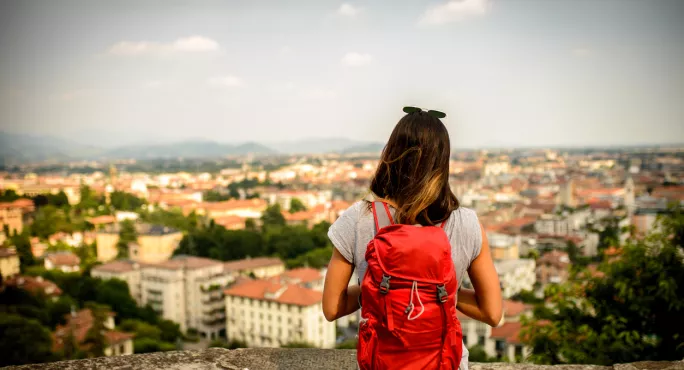Once a teacher, always a teacher. I even tried to stop when I took an eight-month sabbatical back in 2016. Then August arrived, and I realised that I was missing my job terribly.
So it is no wonder that, after a few days of school lockdown, that very feeling has insinuated deeply into our now typical atypical daily life.
I teach English at Licei dell’Opera Sant’Alessandro, an international senior school in Bergamo. Our small city, famous for its walled upper town and a football team that has been performing miracles in Serie A and the Champions’ League, has recorded cases of Covid-19. It is currently in the yellow zone, not too far from the red one near Milan.
Schools in our region of Lombardy have been closed since Wednesday 26 February. At first, for most of us - students and teachers, if not parents - it felt like a welcome extension to the Carnival holidays on the preceding Monday and Tuesday.
By Friday, although we were still waiting for official communication from the governor of the region and the minister of education, it was clear that the following Monday would not be a school day. In fact, it was clear that there would not be many school days in the near future.
Our massive plan B
We suddenly realised that the very gadgets we were used to confiscating - such as mobile phones and tablets - were actually essential. And so we set into motion what I like to call our massive plan B.
The collective effort born out of necessity, but also out of a commitment to our pupils’ learning, has produced a fully functional, comprehensive and user-friendly new timetable. This consists of lessons taught online, and the exchange of digital material on our dedicated platform.
We achieved all of this in no more than a few days. Led by our headteacher, Anna Gabbiadini, who by now is probably seriously sleep deprived but manages not to show it, the digital team has managed to deliver something we all need in time of chaos: structure. They’ve put together a schedule that gives purpose to our weeks in quarantine, and is compliant with the course programmes we compiled back in September.
In the middle of a global pandemic, there is not much room for being complacent. But our hashtag #ilsantalexnonsiferma (Sant’Alex - the abbreviation of our school name - does not stop) has become the symbol of our hard work, efficiency, organisation and, most importantly, of the great relationships we have established years with our students and families.
The perks of online teaching
Yes, I miss the atmosphere and the rapport of being in a classroom. But online teaching has its moments, too.
Some students showed me - via their computer screens - their bedrooms, with a real expression of pride. Some children have their lesson in the kitchen, so that the fridge and the pantry are not that far away.
I have seen pets of all shapes and sizes. I’ve noticed parents lurking behind curtains, appearing briefly to ask me for a consultation on an aspect of English grammar.
Some pupils forget everyone in the class can see them, and happily chew gum or bite their nails in front of the camera.
Perhaps the netiquette needs some fine tuning, but my pleasure in seeing students healthy and eager to participate in online learning makes me feel less isolated.
Bergamaschi (citizens of Bergamo and its province) are strong-willed hard workers. They rebuilt Milan from scratch after the Second World War. Among us are a renowned architect, an opera composer and the commedia dell’arte character Harlequin.
This is who we are, and who we will continue to be - remotely and online - until we meet again.
Marina Cadei is an English teacher and head of modern languages at the Licei dell’Opera Sant’Alessandro, in Bergamo, Northern Italy
